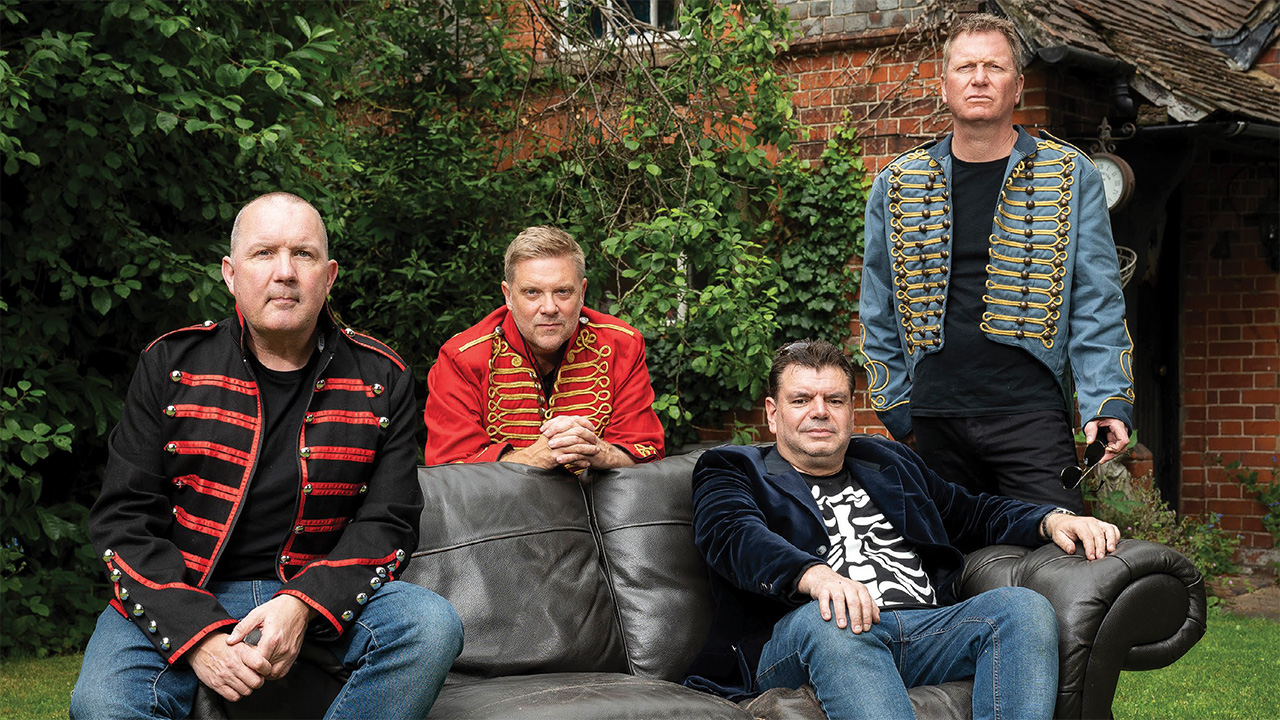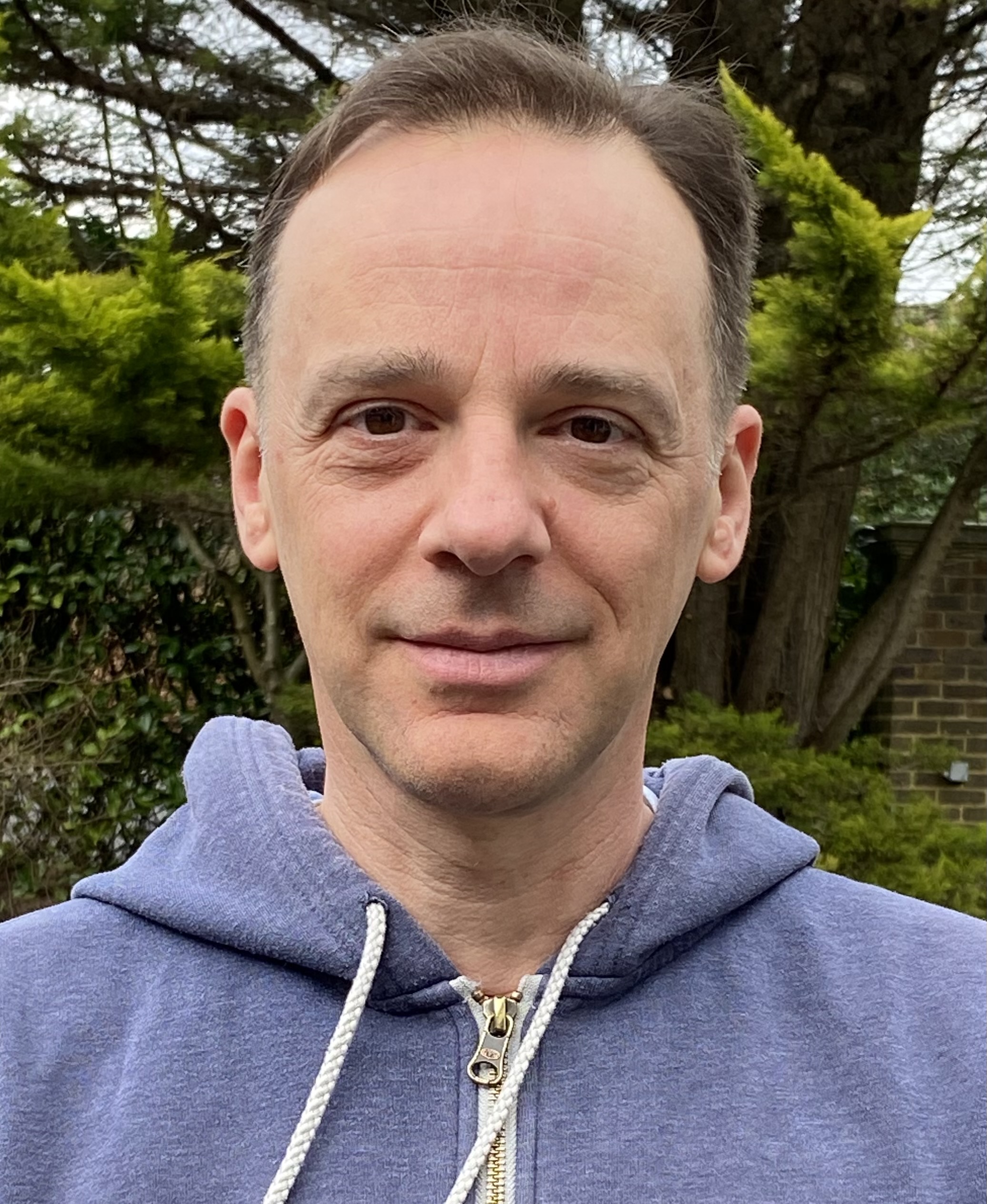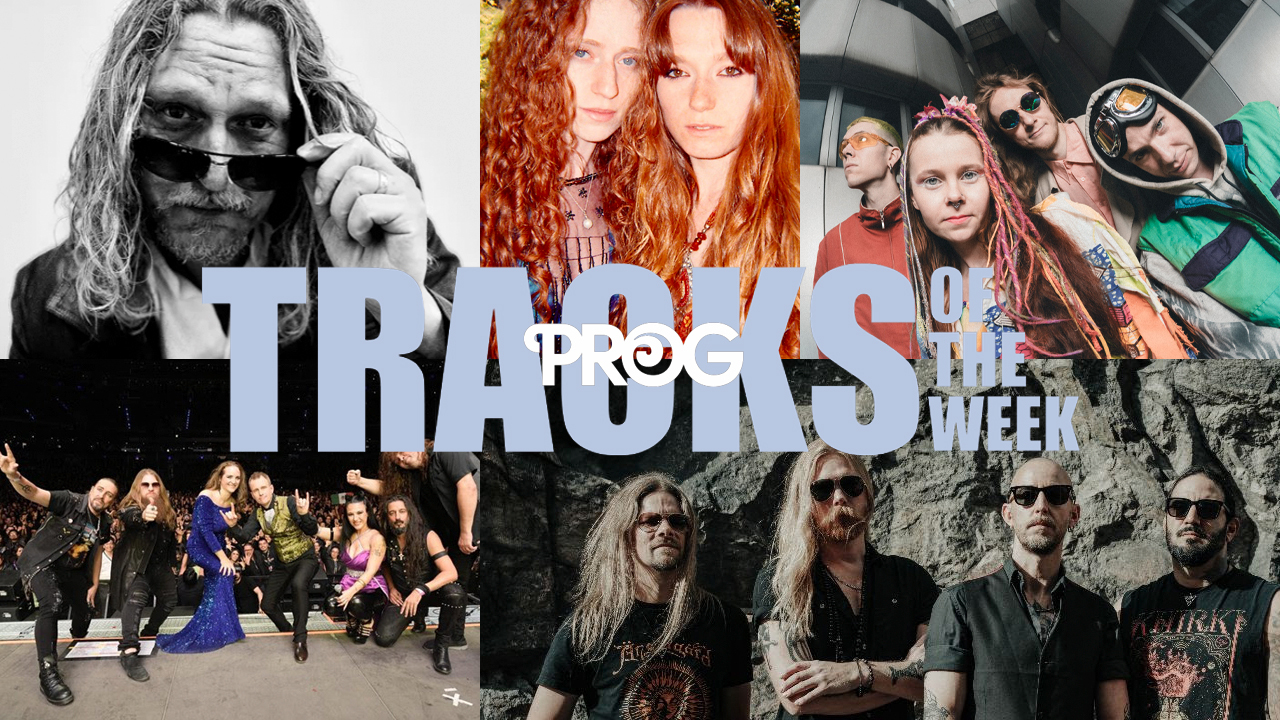“Last time we did an album with solos was eight years ago. That’s a long time to ask people in a prog band to not have solos”: Why Frost* revisited dazzling debut Milliontown on Life In The Wires
Leader Jem Godfrey, who took a financial hit to spend five months focusing on the band’s double-length concept album, explains why doing something connected with their past equals doing something entirely new

The unpredictable Frost* are back with Life In The Wires, a bold double concept album that revisits the mood of their first record Milliontown. Band leader Jem Godfrey tells Prog why he rolled out the solos on a record he describes as the most fun since their dazzling debut.
Continuity of activity is the hallmark of countless successful bands, prog or not – but rules have exceptions, and continuity has never been a dominant feature of Frost* – their career has been punctuated by many stops and starts. Their dazzling debut, Milliontown, launched them onto the progressive scene in 2006, but prime mover Jem Godfrey decided to call an abrupt halt to proceedings later that year.
He then executed a spectacular volte-face only a few months later, resulting in 2008’s somewhat underwhelming and ironically titled Experiments In Mass Appeal. After that second album, Frost* went on hiatus, which was interrupted with 2016’s Falling Satellites. Then (2020 box set and EP aside) they downed tools again before returning in 2021 with fourth album, Day And Age.
By Frost*’s irregular standards, releasing Life In The Wires comfortably within four years of its predecessor appears almost unduly hasty and actually threatens to provide the band’s previously haphazard career arc with some continuity. Speaking to Prog from his studio, The Cube, in Kent, Godfrey chuckles as he references the band’s “glacial work rate.”
So what prompted this comparatively swift follow-up? “I had something to say for once, so it wrote itself, really,” he explains. “It was an ideas I had that was floating around and does actually follow on from Day And Age. They’re in the same universe because the end of that album starts with the beginning of this one. I did that deliberately because I already had a bit of an idea when we did Day And Age that this was a thing that could have legs.
“Day And Age felt very cinematic in terms of the different songs; each of those songs concerned characters within a certain universe. It lent itself to having a bigger story told.” This in itself is far removed from Frost*’s usual approach; as evidenced by their first four albums, and indeed 2020’s Others EP, their ethos has been never to do the same thing twice.
“That’s one of the reasons I did it,” Godfrey explains. “The modus operandi of this band is to always do the opposite of what people expect.” Given their previous non-repetition approach, and the sharp turns Godfrey and his bandmates have taken, a return in many respects to the style of Milliontown is perhaps the last thing fans anticipated.
Sign up below to get the latest from Prog, plus exclusive special offers, direct to your inbox!
Godfrey admits he hadn’t expected to make a new album so comparatively swiftly. “Because there was no expectation with Milliontown, it was actually quite easy to make, and tremendous fun. And actually this album has been the most fun I’ve had making a Frost* record since Milliontown. There were no boundaries.
It’s a sort of Pilgrim’s Progress-type journey: everyone dies. The usual thing, really!
“People weren’t expecting an album so quickly – and I don’t think they were expecting a double album, which is another thing that’s fun about it. I’d always wanted to do a double concept album, because we’re a prog band and you have to do that.”
With more than 80 minutes of music, the subject of Life In The Wires is AI. “It’s not really an anti-AI thing,” Godfrey says. “It’s this character in a world where AI is dominant and pushing against that, to not be subsumed by it. It’s a sort of Pilgrim’s Progress-type journey: everyone dies. The usual thing, really!”
While Day And Age saw the band embark on a more collaborative approach – with Godfrey and guitarist John Mitchell writing together – Life In The Wires is heavily dominated by Godfrey alone. “Because John had lots of other commitments, I’ve written 98 per cent of this. I wanted to go back to that more singular approach of pulling something out myself. I totally understand why John does Lonely Robot; I love that you can control the whole thing. Everything that happens is as a result of you doing it, and that’s brilliant.”
But surely with Godfrey taking back creative control so significantly, the dynamic within Frost* has moved on again? “I don’t think it’s changed anything,” he says. “The others have always said it’s my band, which it is. Sometimes I’ve come to writing sessions a bit half-arsed, thinking about three other jobs at the same time. It’s brilliant to write with somebody when you’re in that frame of mind. But I didn’t find I had any gaps that needed filling. They played on this album. It’s not like me playing everything. Everyone’s part of it.”
It was one of those things where you listen to an album and wish you could do it again… there’s a lot of those questions answered here
Having cleared his diary of all other creative commitments, Godfrey ensconced himself in The Cube between January and May 2024 and set to work. “When John does his Lonely Robot albums, he holes himself up at home for a month and doesn’t come out until it’s done. So I thought I’d do the same – I cancelled everything else, stopped doing other work, and it was absolutely brilliant. But, of course, because I work half as fast as John, it took me five months rather than one!”
Those five months appear to have been very productive, with a result that’s indubitably closest to Milliontown. Fair or unfair? “Very fair – and quite deliberate,” says Godfrey. “But compositionally this is a stronger set of songs. And being 18 to 20 years later, the production is more up-to-date.
“I listened to Milliontown recently. It was fine for its time, but does sound a little bit dated in places. It was one of those things where you listen to an album and wish you could do it again so you can do that bit better. And there’s a lot of those questions answered here.
“I get told a lot that it’s the best thing we’ve ever done, so it was nice to acknowledge it and say, ‘Alright, here’s a bit more of that.’ But that’s also us being different: we’ve always done something different, so to do something different by doing the same thing is also doing something different!”
Additionally, having embraced a ‘no solos’ mantra for Day And Age, there are solos – and in particular keyboard solos – aplenty on Life In The Wires. “There wasn’t a diktat that we’d never solo again; it was just for one album and gave it an interesting sound.”
Godfrey maintains that his contrarian approach made the band more creative and cites the middle section of Terrestrial to support his position: “We could have just had a rinse, but it was nice to have that little vocal bit and dropping stuff in and out and how it all changed. I realised that the last time we did an album with solos was Falling Satellites, which was eight years ago. That’s a long time to ask people in a prog band to put up with not having any solos.
Basically you have to be bloody minded enough to take a bit of a hit financially – which I did
“So I thought it be good to row back a bit. Some of us are fairly handy as soloists; I thought, ‘Fuck it! I’m going to go for it.’ I just did what I wanted. It was really good fun to be slightly freer of the restrictions we’ve imposed upon ourselves before. Everybody wants that bit in a song where you let rip a bit. So I just did a whole double album of it.”
It’s abundantly clear that Godfrey revelled in every second of his experience of Life In The Wires. “I understand now how much fun it must have been in the old days when people were in bands full time and they actually could do it as a career,” he reflects. “I pissed quite a few people off by saying, ‘I’ll see you in five months.’ Basically you have to be bloody minded enough to take a bit of a hit financially – which I did.”
Frost* have never been a full-time endeavour for any of the key protagonists, though. Godfrey continues to be highly in demand in the world of radio and recently worked on the relaunch of BBC Radio Two’s sonic branding. While It Bites appear consigned to the history books, Mitchell’s current commitments include Asia, Lonely Robot, the David Cross Band and Arena. Meanwhile, bassist Nathan King keeps busy on the road with Level 42 and drummer Craig Blundell juggles live commitments between Steve Hackett and Steven Wilson.
Frost* did manage a handful of UK shows at the back end of 2022, and followed those up with an appearance at the Midsummer Prog festival in the Netherlands last year. “I’m ticking things off,” Godfrey says of his musical wish list. “I always wanted to play at being a proper rock star and have this as my only job, which I did for five months. It was completely brilliant and it’s been a real pleasure doing this album. I was very sad when it was finished and I had to go back to the real world.”
Nick Shilton has written extensively for Prog since its launch in 2009 and prior to that freelanced for various music magazines including Classic Rock. Since 2019 he has also run Kingmaker Publishing, which to date has published two acclaimed biographies of Genesis as well as Marillion keyboardist Mark Kelly’s autobiography, and Kingmaker Management (looking after the careers of various bands including Big Big Train). Nick started his career as a finance lawyer in London and Paris before founding a leading international recruitment business and has previously also run a record label.





